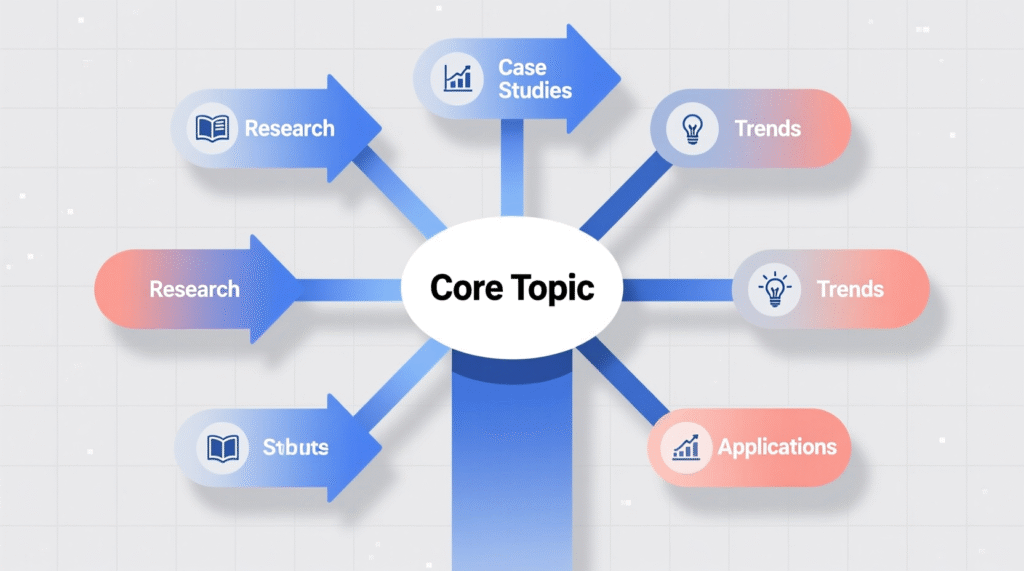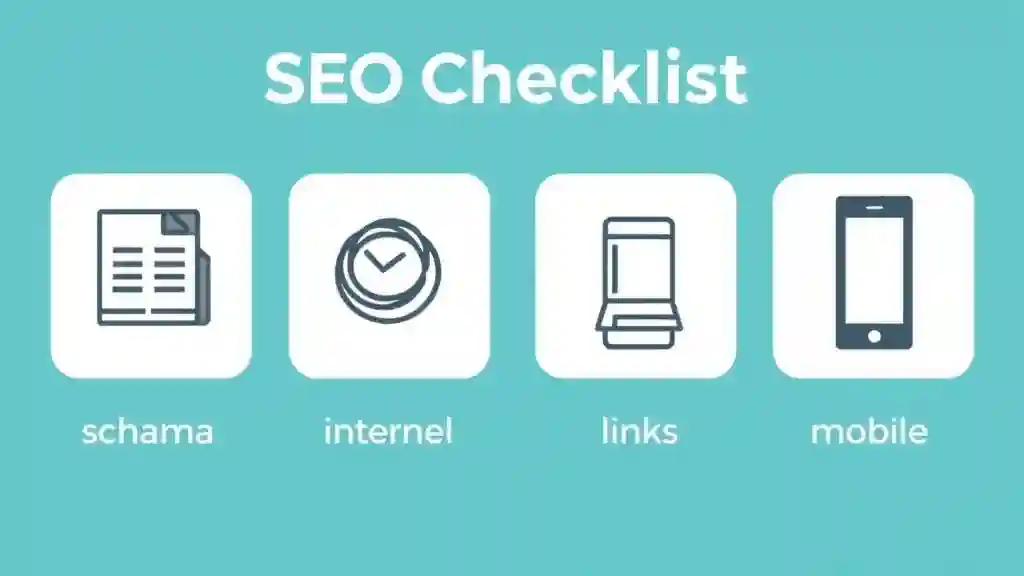
AI for content optimization & ranking guide
Intro
AI for content optimization & ranking is the modern cheat code for writers and creators who want search traffic without guessing. I’ll keep this tight and practical. You will get clear steps, real tactics, and easy examples you can use today.How it works: AI for content optimization & ranking
Short version: AI tools speed up research, spot gaps, and help shape content that both humans and search engines prefer. I break it into three moving parts: discover, write, and polish.
Step-by-step: AI for content optimization & ranking
- Seed and expand
Start with 3 core topics you want to own. Put them into an AI keyword or topic tool. Get long tails, question-style queries, and related terms. This builds the map you will cover.

- SERP and AI overview check
Use the AI to scan top-ranking pages and featured snippets. Ask the tool: what answers do search engines favor for these queries? That tells you the format and angle to use.

- Outline and depth
Create a topic cluster outline. Let the AI suggest subheadings and FAQs. I like to force it to produce an outline that covers 8–12 micro-topics so the post is topically dense. - Draft with intent
Write with AI help but keep human voice. For each section, include one clear action or example. Use the tool to expand points, then edit for personality and clarity.

- Polish for humans and robots
Run readability checks, add schema, optimize meta tags, compress images, and test mobile layout. Also add internal links to related posts so the site signals depth.
Practical example: imagine you want a post on “how to pack a carry-on.” You feed that seed to an AI, get 20 long-tail queries like “carry-on liquids rules 2025,” cluster them into sections, write a 1,500-word guide that answers each question, add a checklist, then publish with schema for FAQ. That whole flow is how AI for content optimization & ranking turns a guess into a system.
Good points
- Speed and scale
You research in minutes not days. AI surfaces questions real users ask so you avoid gaps. - Better topical authority
When you use clusters and answer related questions, your content looks more complete to search engines. - Format guidance
AI shows whether listicles, how-tos, or comparison posts win the SERP. That reduces format guesswork. - Continuous improvement
AI helps monitor rank shifts and suggests specific edits to regain or boost visibility. - Saves brain cycles
I use AI to dump repetitive tasks so I can focus on original ideas and voice.
Limitations
- Noise risk
AI can hallucinate or suggest irrelevant facts. Always verify stats, quotes, and dates. - Cookie-cutter danger
If you rely on AI prompts without original insights, content can feel bland. That kills engagement. - Technical gaps
AI won’t fix slow hosting, broken indexing, or bad site structure. You still need basic SEO hygiene. - Ethical and detection concerns
If your goal is to mask AI use, that’s risky. Aim for human editing and clear value added. - Metric dependence
AI suggestions often chase clicks and snippets. That can shift attention away from long-term brand value.
Comparison
AI for content optimization & ranking versus manual SEO
- Research speed: AI wins. It pulls related queries fast.
- Original insight: manual edge. Humans provide unique case studies and voice.
- Consistency: AI helps scale consistent structure and metadata.
- Cost: AI lowers labor but adds subscription costs.
- Risk: AI needs verification; manual work avoids hallucinations but costs time.
My take: use AI for research, structure, and polish. Use humans for examples, opinions, and trust signals.
Best users
- Small publishers who need consistent volume.
- Solo creators who juggle many tasks.
- Agencies that want repeatable frameworks for clients.
- Product teams creating help docs or knowledge bases.
- Bloggers who want to upgrade older posts at scale.
If you are a data-first creator, AI will multiply your output. If your strength is personality and craft, AI will free you to focus on what makes your writing unique.
Final benefits
When you do this right, AI for content optimization & ranking gives you a repeatable content machine. You get faster research, clearer outlines, and data-led edits that lift clicks and time on page. Most important, you spend less time guessing and more time creating original ideas that stick.

Quick checklist I use every time
- Seed terms ready
- SERP and snippet audit done
- Topic cluster outline created
- Draft edited for voice and accuracy
- Schema and meta applied
- Internal links added
- Performance tracked weekly
Conclusion
AI for content optimization & ranking is not a magic wand. It is a practical toolkit that, when combined with human judgment, speeds results and improves rankings. Start with one post, follow the checklist, and iterate. I promise it gets easier and faster.
Frequently Asked Questions: AI for Content Optimization & Ranking
Q1: How does AI actually help with content optimization and ranking?
I used to spend hours guessing which topics and keywords would perform, often feeling lost. AI changed that game completely. By feeding seed topics into AI keyword tools and scanning top-ranking pages for gaps, I could quickly map out what users really wanted. It’s like having a research assistant that never sleeps. This approach saved me days and helped my posts rank faster and more consistently.
Q2: Can AI tools replace human creativity in writing and SEO?
AI speeds up repetitive parts of the job—like research, outlining, and meta descriptions—but it can’t replace your unique voice or storytelling. Early on, I let AI draft entire pieces, and honestly, readers noticed the blandness. Now, I use AI to polish and organize my ideas, then inject personal stories and examples to keep my blog lively and engaging. That blend is what wins trust and rankings.
Q3: What are the risks of relying on AI for SEO content optimization?
I got burned once when AI hallucinated facts in a post, and that shook my credibility. AI can suggest outdated info or generic advice, so fact-checking is a must. Also, don’t lean too heavily on cookie-cutter prompts; your content might end up boring or too similar to others. Think of AI as your co-writer, not the lead author—always add your expertise and personality.
Q4: How do I choose the right AI tools for content optimization?
There’s a tool for every step—keyword discovery, outline creation, editing, and technical SEO. I feed core topics into AI keyword tools like ChatGPT, cross-reference with Google SERP features, then draft using AI writing aids. For polishing, tools that check readability and add schema markup become invaluable. Start simple, then expand your toolkit as you learn what fits your style and workflow.
Q5: How can AI help with voice search and snippet optimization?
Voice search tends to favor concise, natural language answers. AI tools help me discover conversational, question-style keywords (people ask, how to, best ways to) and craft short, clear answers that Google loves. When I began structuring FAQ sections using AI for these exact queries, my content started appearing more in “People Also Ask” boxes and voice search results.
Q6: Do AI tools help bloggers optimize content for mobile users?
Absolutely! AI can suggest shorter paragraphs, bullet points, and mobile-friendly formats. I remember reformatting a dense post with AI’s help — breaking up text into digestible chunks and adding tables made bounce rates drop by nearly 20%. Mobile usability is a critical SEO factor in 2025, and AI-driven readability checks are a real time-saver.
Q7: How often should I update AI-optimized content based on SEO performance?
SEO is not a “set and forget” game. Using AI to track ranking shifts and identify new gaps lets me refresh my content regularly. I schedule quarterly updates for pillar posts, adding new examples or adjusting for algorithm tweaks. This proactive approach keeps the site competitive and signals to Google that content is fresh and authoritative.
Q8: Can AI tools help with multilingual or localized content optimization?
Yes! I work with content in English and regional languages. Modern AI tools like ChatGPT and Writesonic can generate and optimize text in multiple languages, helping me tailor keywords and tone for local audiences. Just remember to tweak for cultural nuances and idiomatic expressions—AI is great for drafts, but human editing is essential for authenticity.

Pingback: AI SEO tools for bloggers in 2025? - zadaaitools.com